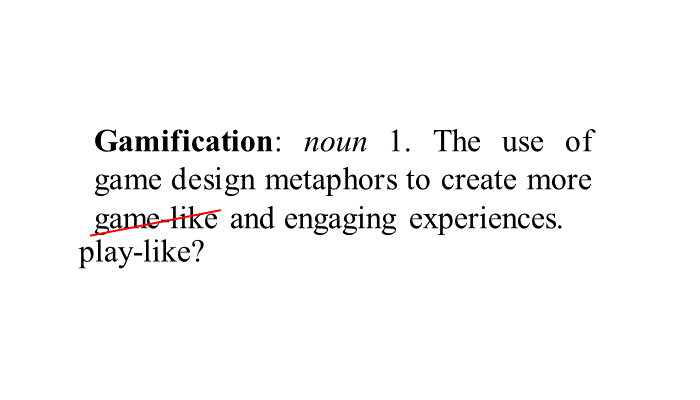When I was researching my definition of gamification, I had a few major dilemmas. One of the main ones was the use of Game-Like over Play-Like.
Just as a reminder, I define gamification in the following way:
The use of game design metaphors to create more game-like and engaging experiences
However, it was very nearly:
The use of game design metaphors to create more play-like and engaging experiences
I have spent time previously explaining how I see the differences between play and games, you can read loads more here. At it’s most basic, the difference revolves around rules and goals. Games have extrinsically imposed rules and goals, where play doesn’t (or, at least, has far less). It is free form in its nature and from the outside looks like it has no purpose (but of course it does!).
